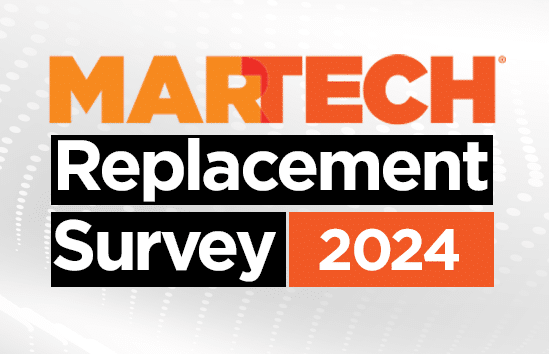
Artikel
19
July
China leads the world in generative AI use
Eighty-three percent of Chinese business decision-makers say their organizations are using AI. This contrasts with the U.S. (65%) and the U.K. (70%). However, closer questioning reveals that U.S. organizations are ahead in terms of genAI maturity, having fully implemented solutions.
These statistics come from an extensive global survey of 1,600 decision makers in genAI strategy or data analytics in organizations across key sectors conducted by Coleman Parkes for data management and analytics vendor SAS. But what is meant by full implementation? To get a clearer understanding of the results, we spoke with Jonathan Moran, head of martech solutions marketing at SAS.
The four elements of genAI implementation
The report lists four key elements for genAI success:
- Comprehensive governance.
- Strategic deployment.
- Technological integration.
- Expert guidance.
It goes on to say: “…GenAI must be seamlessly embedded within business processes and systems. Performance should be reliable, transparent and ethical, accelerating productivity and improving customer experience, while adding measurable value to stakeholders.”
In other words, having some random team members using genAI tools here and there in their workflows just doesn’t cut it.
“What the research shows is that they’re doing a lot of experimentation with generative AI in China,” said Moran. “There are a lot of governmental mandates for the use of generative AI. China is leading the way from a patent perspective when it comes to generative AI with more than 38,000 filed between 2014 and 2023. The U.S. filed 6,300 in that same time period.”
Government mandates, then, are to some extent enforcing deployment, but that falls far short of “productionizing” it, to use Moran’s term. “There’s a a significant gap between what organizations would like to do and what they would like to productionize when it comes to generative AI and what they’re actually comfortable doing right,” he said. The problem remains a lack of understanding, including a lack of training. “Many senior tech decision-makers admit that they don’t fully understand generative AI or its impact on business processes, right? A quarter of all folks want to roll it out next year but almost everyone doesn’t understand how to effectively use it.”
This goes for IT as well as other business teams. “Of the CTOs surveyed, only 40% of them said that they were familiar with how their organization wanted to adopt and and deploy generative AI,” said Moran.
AI is not just generative AI
This report is specifically about the utilization of genAI, but the context against which it should be seen is the use, in many cases long-standing, of other types of AI.
“At SAS, we’ve been talking about AI and the different kinds of AI techniques long before generative AI kind of hit the scene,” agreed Moran. “Whether it’s using natural language generation, natural language processing, natural language understanding to take unstructured data and and transform and normalize that into structured data; whether it’s using machine learning models on the back end. But generative AI is bringing AI more to the front end CX applications. We’re gonna see much immersive experiences from a CX perspective, right, whether it’s actual usage of software, whether it’s interactions at a point of sale or a kiosk or an ATM or even ordering, you know, fast food.”
The need for comprehensive governance
The report insists that governance needs to be part of genAI implementation. Governance should address everything from compliance with regulations, to mitigation of bias, to minimization of risks such as inadvertent data disclosure.
“Governance builds in the kind of workflows that validate the entire life cycle of LLMs, from compliance to regulatory risk management through to reporting and measurement. If you don’t have those processes in place, I think that you’re setting yourself up for for trouble,” said Moran.
In absence of internal governance controls, governments or external agencies can step in. “I think China’s probably a good example of that where the U.S. is letting things happen more organically. One of the things we talk about at SAS is this idea of trustworthy AI — having privacy, security, compliance, all of those controls in place such that you don’t end up in a situation where data gets in the wrong spot, or some bias occurs, or a data leak happens and then you’ve got some bad press on your hands.”
Dig deeper: Rethinking content governance in the era of generative AI
The SAS solution
It should come as no surprise that SAS has developed a solution to many of the above challenges. Its Viya platform runs AI models — and not just generative AI — at speed and scale, with governance built in. It can also feed its results directly into Adobe and Salesforce instances.
“We’ve got a connector framework through which we integrate with the Salesforces and the Adobes of the world,” Moran confirmed, “because they’re the big martech vendors in the space, right? What we do is position ourselves as that analytical horsepower that can sit behind them.”
The full report can be found here (registration required).
What's your reaction ?
Follow us on Social Media
Some Categories
Recent posts

February 04, 2026
Inkomstenbelasting 2026: dit verandert er voor ondernemers

February 03, 2026
Inkomstenbelasting 2026: dit verandert er voor ondernemers

January 30, 2026
Dit wordt het minimumloon vanaf 1 januari 2026 per uur en per maand

January 25, 2026
Verplichte AOV is niet of nauwelijks uitvoerbaar voor zzp’ers volgens Raad van State

January 21, 2026
Verplichte AOV is niet of nauwelijks uitvoerbaar voor zzp’ers volgens Raad van State

 Inloggen
Inloggen
 Registreren
Registreren







Comments (0)
No reviews found
Add Comment